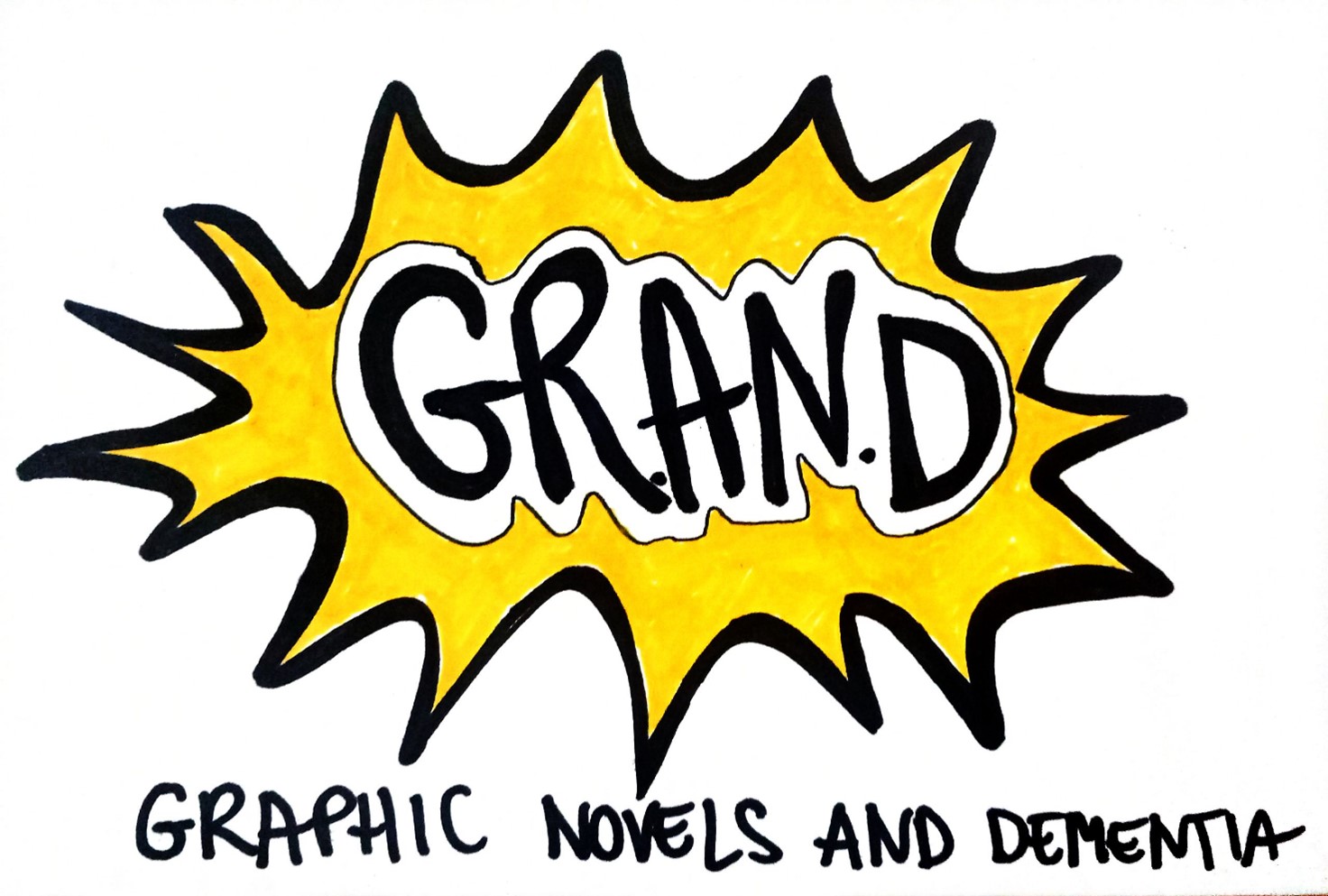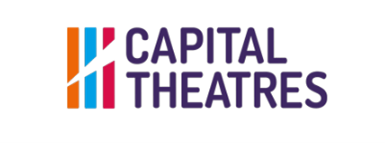GRAND – Graphic Novels and Dementia
A bold Mini Commission by Valeria Lembo in collaboration with Willy Gilder and Alex Howard, with support from Capital Theatres
Blog post by Valeria Lembo

Comics, graphic novels and short stories are powerful tools for narration and storytelling. Combining both art and the written word, they are highly accessible and possess the ability to transcend the restrictive barriers of age and language, both of which can act as stigmatising forces for people living with dementia.
Representations of dementia in literature often come from the perspective of a family member. Most of them focus predominantly on dramatic aspects and on the final stages of living with dementia from a carer’s perspective. Instead, for this project, we are interested in the stories of the people with dementia themselves.
Through this bold Mini Commission we will set up an intergenerational workshop series (4 workshops, 1 monthly from June to September 2023 + 1 final gathering/launch event in December 2023), where 2/3 people with early/mid-stage dementia and 2/3 high-school students together will co-create short graphic stories, inspired by the lives of participants with dementia. Principles of co-creation and co-production will inspire the whole process.
The aim of GRAND is not simply to create stories presented in an accessible and enjoyable format, but also to support participants towards being inspired by the process of graphic storytelling itself. In fact, the unique combination of drawings and words of graphic storytelling, the storyboard format, and the possibility of fictionalising characters, open up possibilities for expression that are foreclosed to other narrative styles. In graphic stories, memories and imagination can coalesce to create something poetic, witty, unique; an art form that is capable of holding together opposites.
Why an Intergenerational Project?
According to the experience of several art facilitators I have interviewed in the past, intergenerational encounters between adults living with dementia and younger people can be uniquely enjoyable, meaningful and inspiring for both parties.
With this project, we want to facilitate a workshop space where participants of both age groups, who would not typically meet, can collaborate; a space where it is possible to experiment, make mistakes and make choices that feel meaningful and empowering; an atmosphere that is safe, supportive and creatively vibrant.
Young people and persons living with dementia are still marginalised voices in our society. As a result, society is often ignorant of their views, concerns, feelings, along with the expertise which they might otherwise impart on the world around them.
Hopefully, participants will feel inspired to express themselves, learn from each other and produce alternative narratives to mainstream representations. These stories have the potential to transform misconceptions and dismantle stereotypes, not only about people living with dementia but about the young too.
How did the idea for this bold Mini Commission come about?

Willy and Valeria chatting about the bold MC application, comic vignette by Willy Gilder
During lockdown, I have become an avid reader of graphic novels. As an academic who has to read for work, I often feel too tired to read for pleasure. Graphic novels brought back into my life the joy of reading that I had lost. This made me reflect on the power of graphic storytelling; a form of art that uniquely combines words and drawings, that is enjoyable, poetic, and more accessible to read. The more I engaged with this form of art as a reader, the more I started to dream of producing graphic novels that would tell the wonderful stories of the people with dementia that I have met.
While studying for my certificate in Intergenerational Practice with Generation Working Together Scotland, I have come across multiple examples of intergenerational projects pairing people with dementia with children or young adults. Evidence shows that intergenerational encounters between adults living with dementia and younger people can be uniquely enjoyable, meaningful and inspiring for both parties. The idea of using the bold MC opportunity to trial an intergenerational co-produced project with people with dementia was shaped by this learning.
Being aware of Willy Gilder’s passion for both drawings and stories, his commitment at ‘reimagining dementia’ through the arts, I invited Willy to collaborate in this project. Willy was a fellow bold partner of my cohort. He is a former journalist with great experience in interviewing people and writing stories, but also a visual artist and dementia activist. Willy responded enthusiastically and also suggested orienting the project toward an intergenerational direction.
A collaboration with bold (Bringing Out Leaders in Dementia) supported by Capital Theatres

Supported by

We then invited Alex Howard, writer, editor and Engagement officer for the Dementia Friendly Programme at Capital Theatres, in Edinburgh to get involved. We are very grateful to Capital Theatres for their generous support with this bold (Bringing Out Leaders in Dementia) Project both hosting all our project activities in their venue and for Alex’s collaboration as their in-house editor, assisting us throughout the whole project.
Each month Alex weaves together the creative outputs submitted by people with lived experience of dementia into the DementiArts Magazine produced by Capital Theatres. The magazine is available both online and in paper copy. According to the feedback received, the printed format is particularly appreciated by people with dementia as it is produced and typeset with dementia best practices in mind. Producing the graphic stories in a printed format is an important aspect of my project idea, as a way to address the desire among the Dementia-Friendly Community for more printed material.
Sources of inspiration
My sources of inspiration are many. The bold partners of my cohort (cohort 3), with their creativity and inspiring work, have been my greatest source of inspiration. I have been particularly inspired by Willy Gilder and Ron Coleman’s art and wit. They are volcanoes of imagination, creativity and have become inspiring reference points in my life. They have shown me that art is a serious yet fun business, and that dementia can open up unexpected possibilities for creativity.
I have also been inspired by the online art activities at Capital Theatres attended during my PhD research; this is a further reason why collaborating with Capital Theatres is so important to me. There I joined song-writing workshops, dance, music, drawing, poetry and story-telling sessions that fired up my creativity. I have been particularly inspired by Dawn Irvine, bold Project Manager and her collaborators’ way of listening to and learning from people with lived experience of dementia.
What are we trying to do or achieve with this bold Mini Commission?
Guided by the facilitators, participants will be the authors and artists of these graphic stories. Through the creative exchange, the participants will ultimately get to know each other better through the various lenses they have guided into each other’s lives. We are just as interested in the final product as we are in the process that led to creating that product.
Through the collaborative process of the workshops, we aim to foster an interconnectivity between different generations; facilitate encounters for people of different age groups who otherwise would not meet; plant seeds for creating more dementia-inclusive society with less separation among generations; enable a space for participants where they can feel both safe and adventurous.
Through the product itself, the co-produced graphic stories, we aim at producing alternative narratives to mainstream representations, with the potential of fighting stereotypes against dementia.
Recruitment of workshops participants is still ongoing
If you are interested, please get in touch: valeria.lembo@ed.ac.uk
